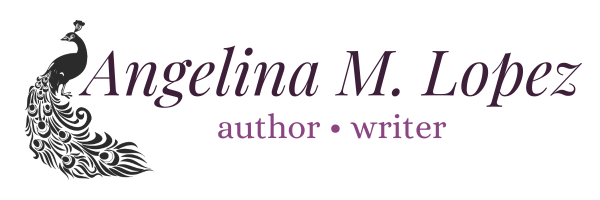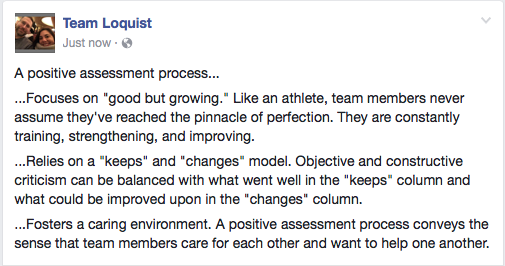Update, January 2020: I wrote this soon after I completed The Billionaire’s Prince, Now Titled Lush MOney and Available now. What an incredible journey it’s been!
In 2011, I finished a book. I sweated over it, I celebrated it, I won a contest with it, and then, when I received, like, eight rejections for it (I'm not kidding), I threw it under the proverbial bed and declared that I was done with fiction writing.
Perhaps I wasn't quite as dramatic as all that, but it still wasn't pretty.
Now, seven years later, after starting a successful freelance business that forced me to write quickly and daily, after discovering the joys of writing serially to enthusiastic fans on Wattpad, and after completing a 50,000-word fanfic and a short story that I'm incredibly proud of, I've completed another book.
On Dec. 18, 2017, I gave myself the Christmas present of completing The Billionaire's Prince (now titled Lush Money), a story about a sexy female billionaire who strikes a bargain with a prince. In return for three nights a month in his bed, she will give him enough money to save his kingdom. All she wants is three nights a month in his bed for a year. And his heir.
I know. Juicy.
Everything has changed about the world of romance fiction since 2011. Fortunately, everything about how I write has changed, too.
I'm a "yes-er" instead of a "no-er."
I remember sitting at the back of the room at a Washington Romance Writers' retreat, arms crossed, as Angela James of Carina Press, Harlequin's digital-first imprint, told us about the future of online books. This would have been...2009? My girlfriend and I declared that we would NEVER limit our beautiful books to the digital world.
Yep, I said that.
My tiny little mind has grown beyond those early limitations and now I'm excited about what technology has offered us storytellers. The scrolling panels of online comics, the serial pacing of reader/writer platforms like Wattpad and Radish, and the "let's throw it at the wall and see what sticks" mode of modern-day storytelling have taught me the freedom unleashed by technology. Our ability to tell a story in a way that best meets the needs of that story is only limited by our imagination. And our stubbornly crossed arms.
I've turned down my perfectionist knob.
I became a docent at the Hillwood Museum in Washington, D.C., this year, and during my training, our brilliant instructors shared with us the concept of "good but growing." Professional athletes at the top of their field don't rest on their laurels, they explained. Instead, they continue to work and train.
I found this concept revolutionary.
Instead of trying to become the "perfect" author, I should look at myself as "good but growing." I will always be learning. I will always be training and changing. And instead of assessing the work through the lens of "perfect," I should think of its "keeps and changes." What should be kept? What should be changed? This assessment takes away (somewhat) the sting of objective criticism.
More importantly, this whole concept of "good but growing" keeps me from trying to reach the imprisoning retirement home of "perfection" and instead allows me to stay out on the open road.
I stayed true to my own voice and path.
My mom likes to talk about the freedoms that come with age, and while I roll my eyes when she talks this way (because I'm a daughter and she's the mom), I also have to agree with her.
Yes, mom.
Because Lush Money was written using myself as true north. It was written saying things I wanted to say about strong women and supportive men and love and sex and family and self-image. I plan to take this compass into the submission process and, hopefully, the publishing process. I'm old enough now to understand that a dream achieved without listening to the directives of your heart is no dream at all.
I've transformed into a pantser.
Seven years ago, I would have sworn to you that I can't write a book without knowing exactly where it was going.
And then, I tried to write three books with elaborate outlines and notecards and emotional arcs and mountains of research. I hated them. I spent three months doing prep work for the last book I attempted, even taking an intensive course about establishing story theme. I literally could not get through the first chapter.
I began the popular fanfiction piece I wrote on Wattpad with nothing but a threat I offer my husband when he doesn't take good physical care of himself: "If you die young, I'm going to take your life insurance money and buy a gigolo." I began writing Lush Money with one single solitary concept: What if the billionaire was a woman? I was as surprised by the twists and turns in that story as the readers. I knew my hero had a sister five seconds before she burst into the room. The photographer who caught my couple de flagrante surprised me as much as he did the couple.
I'm sure my writing method will twist and turn over time as much as my stories. That's because I'm good. But growing.
I'm in love.
I can build kingdoms. I can create corporations and birth beautiful villages in the Spanish mountains and swirl together the most delectable glass of red wine you've ever tasted.
I can make you sweat and break your heart. Don't worry, I'm usually crying right there with you.
And then I take a break for lunch.
"If you don't create, you hurt yourself," says Grant Faulkner in his book, Pep Talks for Writers. "Making art tells you who you are. Making art in turn makes you."
I make myself everyday when I sit down to write. When the words feel stifled, I make myself into someone grouchy and mean, wondering why everything pokes and fits too small until I remember, "Oh yeah, I had a shitty writing day."
But when the words flow, I make myself into something glorious. I find all kinds of joy in this life, but there is nothing that makes me feel more powerful, more capable, more worthy of my place here on this planet than a good day of writing my romance novel.
I've found love. I won't give it up again.



